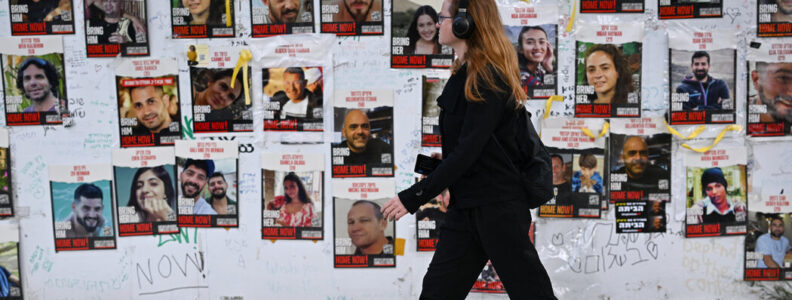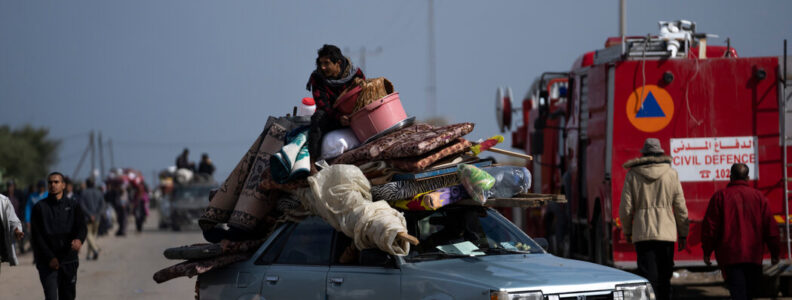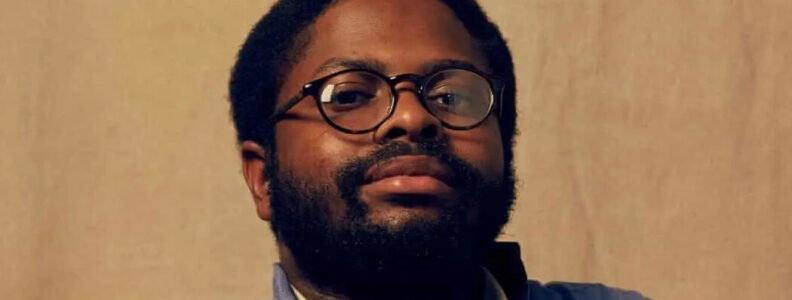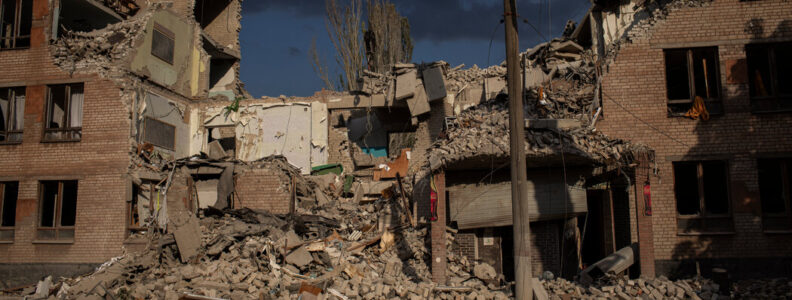One of Israel’s longest hospital raids of the Gaza war stretched into a fourth day on Thursday, as the military said that it had killed dozens of people it described as terrorists in the previous 24 hours in its operation at Al-Shifa Hospital.
Israel has staged a series of raids on Al-Shifa in northern Gaza, the largest medical facility in the territory, arguing that Hamas used it as a command center and concealed weapons and fighters in underground tunnels there. Since the latest attack began on Monday, the Israeli military has reported killing more than 140 people it said were terrorists in and around the hospital, far more than in past raids.
On Thursday, the military said it had also detained 600 people at the hospital. The Israeli accounts could not be independently verified.
The Al Jazeera news network and Wafa, the Palestinian Authority’s news agency, reported on Thursday that Israeli forces had blown up a building used for surgery that is one of the largest at the complex. The Israeli military said it had no comment on the reports.
Iyad Elejel, who lives about 500 yards from Al-Shifa, said the situation was “very terrifying,” adding in a phone call on Thursday: “We are hearing the constant sounds of clashes, gunshots, shelling, bombing, quadcopters and planes all day and all night.” Smoke had infiltrated the apartment where he is staying with 30 relatives, making it hard to breathe, he said.
Mr. Elejel said the children in the apartment were becoming used to the cacophony. “We try to convince them that the sounds they are hearing are from fireworks, but they don’t believe it,” he said.
Nobody has been able to leave the apartment since the raid began, Mr. Elejel said, and the family feared that they could run out of food soon. He said that when he looked out of his window Thursday morning, he saw “many dead bodies lying on the main street” out front. Israeli soldiers have been forcing people in the area to leave their apartments and head south, so the neighborhood was emptying out, Mr. Elejel said.
The military said in an earlier statement that it was continuing to “conduct precise operational activity in the Shifa hospital, eliminating dozens of terrorists over the past day during exchanges of fire.” It also said it was preventing harm to civilians and had located storage sites for weapons.
Mohammed Abu Kmail, a 35-year-old marketing consultant, said in an interview that he was with his wife and two daughters in their apartment, near the hospital, when they woke up before dawn Tuesday to the sound of gunfire close to their building.
He said that around 8 a.m., Israeli soldiers entered nearby buildings, and stripped and handcuffed about 25 men, including himself. He said that, after being scanned by a camera, he and some of the others were released. The account resembled those of other men detained in Gaza since the war began.
The Israeli military said in a statement that detained people “are treated in accordance with international law” and that “it is often necessary” to have detainees remove clothing so it “can be searched and to ensure that they are not concealing explosive vests or other weaponry.”
Israeli forces have carried out a series of raids on medical facilities in Gaza, arguing that Hamas has used them for military purposes. The armed group has denied doing so.
Israel made northern Gaza the initial target of its ground invasion of the enclave, which started on Oct. 27, and it first raided the hospital in November. It later provided evidence that Hamas had constructed a lengthy tunnel under the hospital. A later analysis by The New York Times found that Hamas had used the complex for military purposes. The Israeli military, however, has struggled to prove that Hamas maintained a command-and-control center under it.
Even before the current raid began, international aid workers said that the hospital barely functioned and was incapable of serving the acute health care needs of northern Gaza as it had before the conflict.
The World Health Organization had hoped to conduct a mission to the hospital on Thursday to provide fuel and food for staff and patients, as well as to assess the situation there, but permission had been denied because of security issues, according to Dr. Rik Peeperkorn, who represents the organization in Gaza and the West Bank.
The W.H.O. is “terribly worried” about the situation, he said, adding that it had not been possible to contact staff members there.
Israeli officials said earlier this week that Hamas personnel had returned to the hospital, prompting its operation. Military analysts said Israel’s decision to withdraw most of its forces from the north, in part to concentrate on defeating Hamas in other parts of Gaza, had in effect left a security vacuum.
The initial raid on Al-Shifa became a lightning rod for criticism of Israel over military action around hospitals and the danger it poses to patients and medical staff. The raid also became a symbol of a broader debate about the human cost of Israel’s military campaign to destroy Hamas in Gaza, in which tens of thousands of civilians have been killed or wounded.
Lauren Leatherby contributed reporting.




